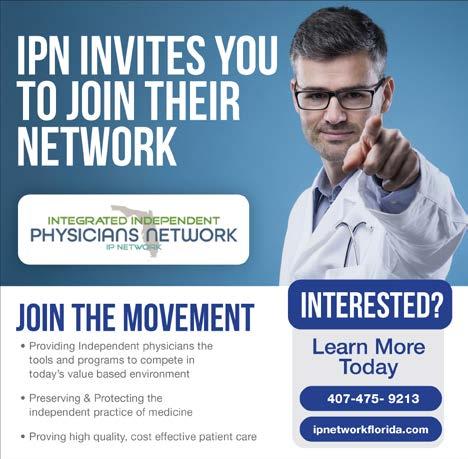
4 minute read
Pandemic Fatigue: Its Real and Affecting Us All
Pandemic Fatigue:
Its Real and Affecting Us All
Advertisement
BY APRIL BOYKIN
Exhausted? Distracted? Experiencing brain fog? Sad or lonely?
A year into the pandemic and we are all frayed around the edges. Disconnected from our friends and families, skipping our traditional holiday practices, vacations on hold, and getting little quality downtime – our tried-and-true coping skills are just not available to us now. If you feel like you are on the verge of burnout, you are not alone. Pandemic Fatigue is real and is affecting us all. It is a state of physical, emotional, and psychological fatigue caused by the increased chronic stress of pandemic demands on individuals, families, businesses, and communities.
For almost a year we in the healthcare industry have been hyper-vigilant creating new standards of care, caring for our patients in new ways, keeping our office and staff safe, and managing all the same adjustments for our families. Rarely do we live in shared circumstances with our patients like we are now, and that takes its toll on our mental, emotional, and physical wellbeing. We are overworked and pulled in so many directions, dealing with the most “basic-need” fears we all experience. As the Pandemic has continued the prolonged exposure has caused countless problems associated with all the things we have lost, given up, or changed.
Recognize the signs
Anxiety, depression, sadness, irritability, and changes in eating or sleeping are all symptoms of pandemic fatigue. However, the most common characteristic is feeling chronically worn out, and being excessively tired after an adequate night's sleep. Additionally, many people are feeling ineffective in their personal or professional life, feeling they can’t “get their bearings” in a new routine, feeling that they don’t recognize themselves or their behavior, and some are even feeling hopeless for the future. If you are sick and tired of worrying about COVID-19 you are likely suffering from Pandemic Fatigue.
Coping Skills
Some of us started strong, making the most of the pandemic, adding in exercise, or working from home with a flexibility that allowed us to see our kids and animals all day. Others of us got pulled into the ever-rising demand of patient care and had no time for anything else. And still, others were thrown into the chaos of declining work with the goal to survive the financial changes. Wherever we started, we are not likely in the same place. Most of us have had to continue to adjust to the changing landscape with little guidance or support. So, it is time to reevaluate where you are and how you are caring for yourself, and to encourage others to do the same. • Give yourself grace and forgiveness: More than anything else, be kind and gentle to yourself and accept that you may not perform at your normal level, and accept that it is OKAY. • Accept your feelings: Remember it is okay and normal not to feel great right now. Recognize how you are feeling, anxious? sad? frustrated? We all have times where things are tough or feel bad, and now may be one of those times. We have to learn to live with discomfort and know we will be okay. • Positive self-talk: Remember to watch your thoughts, identify distorted or negative thoughts, and remind yourself “I’m okay, things will get better, I can handle this.” • Self-care is not an option - it is a necessity! If you have slacked off or never started, now is the time. Do something every day to take care of yourself-a walk, hot Epsom salt bath, stretching, meditation, etc. Do something to give back to yourself. • Meet your basic needs everyday: Now is the time to check back into Maslow’s hierarchy of needs and make sure you are meeting those basic physiological needs. Am I so busy I am forgetting to eat? Am I staying up late working and not getting enough rest? Am I not feeling safe? Am I isolated? Am I not finding satisfaction in the things I am getting done? • Connect with others: Another area where many of us have dropped off our efforts is prioritizing connections. It is time to reconnect and make sure you are connecting by whatever means you can. You may schedule a regular Zoom happy hour, driveway dinners, exercise dates, or some other social distant activity. • Set attainable realistic goals: Many of us are having difficulties finishing, or even starting projects and tasks around the house or at work. Consider breaking the projects down into small tasks, creating short-term goals, and approaching them without judgment. • Take time off: Really use your PTO. Shut off the phone and email and check out from your daily stressors. Notice the urge to connect when you disconnect and remind yourself of the importance to recharge. • Do things that are healing: Hobbies such as reading, planting things, knitting, doing crafts, or cooking can all be self-soothing. Do something that is creative, distracting, and has nothing to do with the pandemic.
CONTINUED P.12










